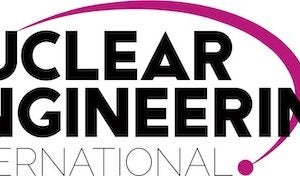 Sarah Moore has worked in the nuclear industry for 33 years in both human resources and training roles. In her current position, Mrs Moore supports the Europe, Middle East and Africa region in Talent Management where she is responsible for implementing consistent and standard processes across the European countries. She works with the Talent team in the Corporate Centre to provide European input when developing new programmes and processes.
Sarah Moore has worked in the nuclear industry for 33 years in both human resources and training roles. In her current position, Mrs Moore supports the Europe, Middle East and Africa region in Talent Management where she is responsible for implementing consistent and standard processes across the European countries. She works with the Talent team in the Corporate Centre to provide European input when developing new programmes and processes.
What is your perspective on the skills situation within the nuclear industry, and how is this changing?
It doesn’t matter which area of the nuclear industry we are focusing on, whether new build, fuel manufacture, reactor maintenance, or decommissioning, the same skills are required to be successful and competitive. We are now in a very competitive environment as we are competing with other large-scale, national infrastructure projects that are simultaneously recruiting candidates with the same skills, such as engineers and project managers.
The industry as a whole is facing a demographic challenge over the next few years as it has an ageing workforce. Westinghouse is no exception. Our challenge is to retain within the business key proficiencies and intelligence from retiring employees. We do this through initiatives such as knowledge transfer, succession planning and robust training regimes.
What issues are you facing when it comes to skills and recruitment?
The issue begins in the schools and colleges, where we must help students to become aware of the diversity of roles available in the nuclear industry and attract them into the industry, which is challenging in such a competitive environment. Westinghouse participates in organisations which are helping to educate students about career choices in nuclear, such as Women in Nuclear and the Nuclear Young Generation Forum.
What initiatives do you have to attract and retain staff?
At Springfields, one of the ways Westinghouse has attracted new staff is by offering apprenticeships through our acclaimed Apprentice Training Centre. In operation for more than 65 years, we have trained apprentices in all aspects of complex plant operations. As further incentives, we have a well-established graduate scheme called Aspirations, and we have recently introduced Nuclear Engineering Degree Apprenticeships.
We also have an excellent retention record at Springfields, where 33% of our current workforce began their careers by undertaking an apprenticeship through our Apprentice Training Centre, and a number of these former apprentices now occupy positions on the Board of Directors. There are also many corporate initiatives, such as a new leadership development programme, that will further develop our leaders to deliver our people management strategy. Additional training concessions are available to encourage employees to develop their careers further.
Our most important asset is our people, their experience, knowledge and of course, skills. Ensuring this knowledge and experience are retained within the business is extremely important to our future success. We actively encourage our graduates and apprentices to rotate around different roles and areas during their training periods. This helps them learn from others and gain experience, together with an understanding of all aspects of our business, which enhances their skills and knowledge and helps them to find the work which most fulfils them professionally.
Would you say there is a skills ‘gap’ in the nuclear sector? What opportunities are there to address this?
Externally, the industry continues to work to attract new talent and build the required education and training facilities to close any gaps.
Internally at Springfields, opportunities are made available for our people to develop into new or different roles where possible. While our long-standing Apprentice Training Centre builds skills in operations across a plant,
our five-year Nuclear Engineering Degree Apprenticeship programme is designed to allow graduates to undertake a broad range of engineering training and technical specialist roles in the nuclear sector. These programmes help to ensure that the industry continues to employ highly skilled and professionally qualified personnel and to close anticipated capability gaps for the sector in the UK.
Read the full feature with insight from EDF Energy, Nuvia, Westinghouse and others.






